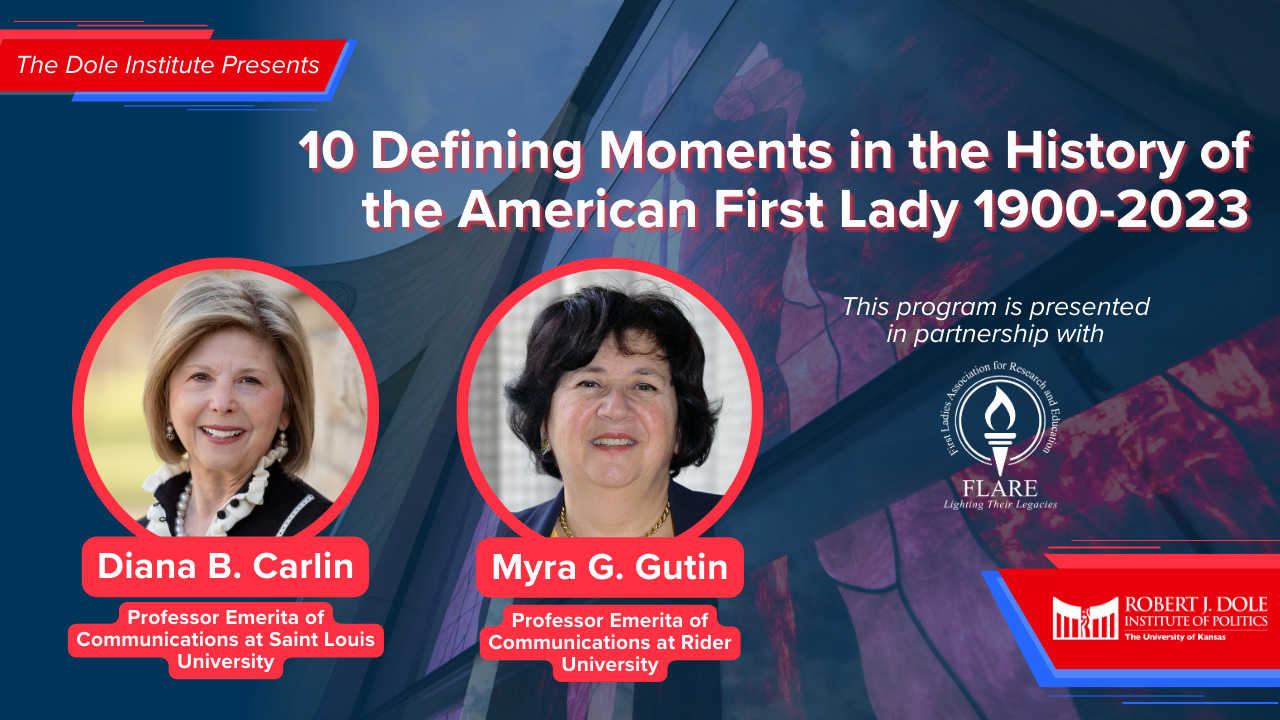
- This event has passed.
10 Defining Moments in the History of the American First Lady 1900-2023
October 19, 2023 @ 3:00 pm - 4:15 pm

The history of the American First Lady has seen a number of defining moments, incidents or challenges that are distinctive and leave a clear impression of the presidential spouse. Included in this presentation are discussions of Eleanor Roosevelt and Marian Anderson (1936); Jacqueline Kennedy’s Tour of the White House (1962); Betty Ford and Breast Cancer (1974), Hillary Clinton’s decision to run for the U.S. Senate (1999) and Michelle Obama becoming the first African-American first lady (2008).
Myra G. Gutin is professor emerita of communication at Rider University, Lawrenceville, NJ. For the past 40 years, her research has focused on American first ladies. She is the author of The President’s Partner: The First Lady in the Twentieth Century and Barbara Bush: Presidential Matriarch. She has authored book chapters, articles, and op. eds. about first ladies and is currently at work on a biography of Betty Ford. A frequent media commentator, she is the president of FLARE, the First Ladies Association for Research and Education.
Diana B. Carlin is professor emerita of communication at Saint Louis University and a retired professor of communication studies at the University of Kansas where she taught a course on women in politics that included first ladies. She has authored book chapters on Martha Washington, Lady Bird Johnson, Barbara Bush, Hillary Clinton, and Michelle Obama. She is the co-author of the first-ever textbook on first ladies, U.S. First Ladies: Making History and Leaving Legacies, which was just released for publication. To purchase a copy of the book, visit this link.
This program is presented in partnership with FLARE.

The First Ladies Association for Research and Education (FLARE) was founded on June 21, 2021, through a collaboration with American University’s School of Public Affairs and its First Ladies Institute. Its mission to create and sustain a network of promote and publicize research and education relevant to the contributions, lives, impacts, and lasting legacies of U.S. first ladies.